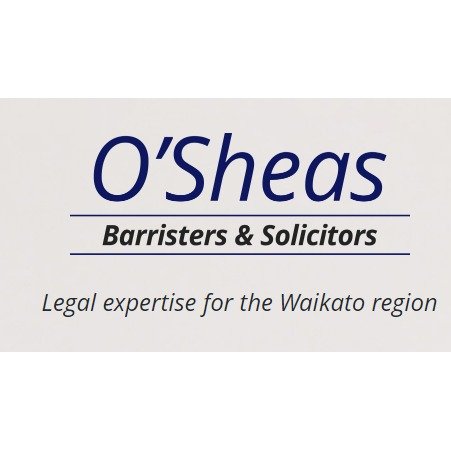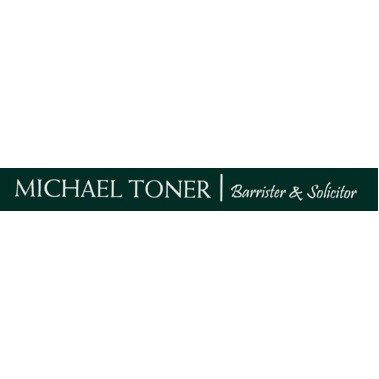Best Commercial Real Estate Lawyers in New Zealand
Share your needs with us, get contacted by law firms.
Free. Takes 2 min.
Free Guide to Hiring a Real Estate Lawyer
Or refine your search by selecting a city:
List of the best lawyers in New Zealand
About Commercial Real Estate Law in New Zealand
Commercial real estate law in New Zealand governs the transactions and legalities involving properties used for business purposes. This includes office buildings, retail spaces, industrial properties, and rental properties. The legislation is designed to ensure that transactions are fair and transparent, protecting the rights of property owners, investors, and tenants. New Zealand has a robust legal framework that supports the dynamic and fast-evolving commercial real estate sector, addressing matters related to leases, land use, property development, and environmental regulations.
Why You May Need a Lawyer
Engaging a lawyer in the field of commercial real estate can be crucial for various reasons:
- Complex Transactions: Buying, selling, or leasing commercial real estate often involves complex legal and financial documentation.
- Lease Negotiations: Lawyers can assist in negotiating lease terms that protect your business interests.
- Dispute Resolution: Disputes over property boundaries, lease agreements, or property use can require legal intervention.
- Zoning and Permits: Navigating local zoning laws and obtaining necessary permits can be challenging without legal guidance.
- Due Diligence: Conducting thorough checks on property titles, liens, and environmental assessments are best handled by professionals.
Local Laws Overview
Key aspects of local laws relevant to commercial real estate in New Zealand include:
- Resource Management Act (RMA): Governs land use and environment, impacting property development and usage.
- Unit Titles Act: Covers the ownership and management of apartment developments and units.
- Building Act: Sets out the standards for construction and maintenance, ensuring safety and health standards are met.
- Property Law Act: Deals with various property transactions and rights of property owners.
- Overseas Investment Act: Regulates property acquisition by international buyers, requiring approval for certain transactions.
Frequently Asked Questions
What is considered commercial property in New Zealand?
Commercial property includes any building or land intended for business activities, such as offices, shops, industrial sites, and retail spaces.
How does zoning affect my commercial property?
Zoning regulations dictate how land can be used, affecting what businesses can operate on it and any development or renovation plans.
Can a foreigner buy commercial property in New Zealand?
Yes, foreigners can purchase commercial property, but they may need consent under the Overseas Investment Act for certain types of land.
What should I consider when leasing a commercial space?
Consider factors such as lease duration, maintenance responsibilities, permitted uses, and options for renewal or early termination.
What is a unit title property?
Unit title properties are individually owned units within a complex, with shared ownership of common areas, often governed by a body corporate.
Are there tax implications when buying or selling commercial property?
Yes, transactions can be subject to GST, and capital gains tax may apply under certain conditions. It's wise to consult with a tax advisor or lawyer.
What rights do commercial tenants have in New Zealand?
Tenants have rights related to lease terms, maintenance obligations, and fair treatment, all outlined in the lease agreement and laws.
How are commercial property disputes resolved?
Disputes can be resolved through negotiation, mediation, arbitration, or, if necessary, through the courts.
What is the process for evicting a commercial tenant?
Eviction should follow legal procedures, often beginning with a lease breach notice, followed by court action if unresolved.
What is a land information memorandum (LIM) report?
A LIM report provides details about a property, including zoning, building consents, and any risks or notices from the council, useful in due diligence.
Additional Resources
For those seeking further information and support, the following resources can be helpful:
- New Zealand Law Society: Provides access to legal professionals specializing in real estate law.
- Property Council New Zealand: An advocacy group for property owners and developers.
- Ministry of Business, Innovation and Employment (MBIE): Offers resources and guidelines related to building regulations and real estate.
- Real Estate Authority (REA): Regulates licensed real estate professionals, ensuring compliance with industry standards.
Next Steps
If you need legal assistance in the field of commercial real estate, consider the following steps:
- Identify your specific needs or issues related to your property transaction or dispute.
- Seek out qualified commercial real estate lawyers through reputable directories or professional networks.
- Arrange a consultation to discuss your situation, evaluate legal strategies, and understand potential costs.
- Ensure all communications and agreements with your lawyer are clear and well-documented.
- Stay informed and actively engage in the process, asking questions and clarifying any uncertainties.
Remember, early legal advice can prevent complex problems later on and ensure your interests are fully protected.
Lawzana helps you find the best lawyers and law firms in New Zealand through a curated and pre-screened list of qualified legal professionals. Our platform offers rankings and detailed profiles of attorneys and law firms, allowing you to compare based on practice areas, including Commercial Real Estate, experience, and client feedback.
Each profile includes a description of the firm's areas of practice, client reviews, team members and partners, year of establishment, spoken languages, office locations, contact information, social media presence, and any published articles or resources. Most firms on our platform speak English and are experienced in both local and international legal matters.
Get a quote from top-rated law firms in New Zealand — quickly, securely, and without unnecessary hassle.
Disclaimer:
The information provided on this page is for general informational purposes only and does not constitute legal advice. While we strive to ensure the accuracy and relevance of the content, legal information may change over time, and interpretations of the law can vary. You should always consult with a qualified legal professional for advice specific to your situation.
We disclaim all liability for actions taken or not taken based on the content of this page. If you believe any information is incorrect or outdated, please contact us, and we will review and update it where appropriate.
Browse commercial real estate law firms by city in New Zealand
Refine your search by selecting a city.
















